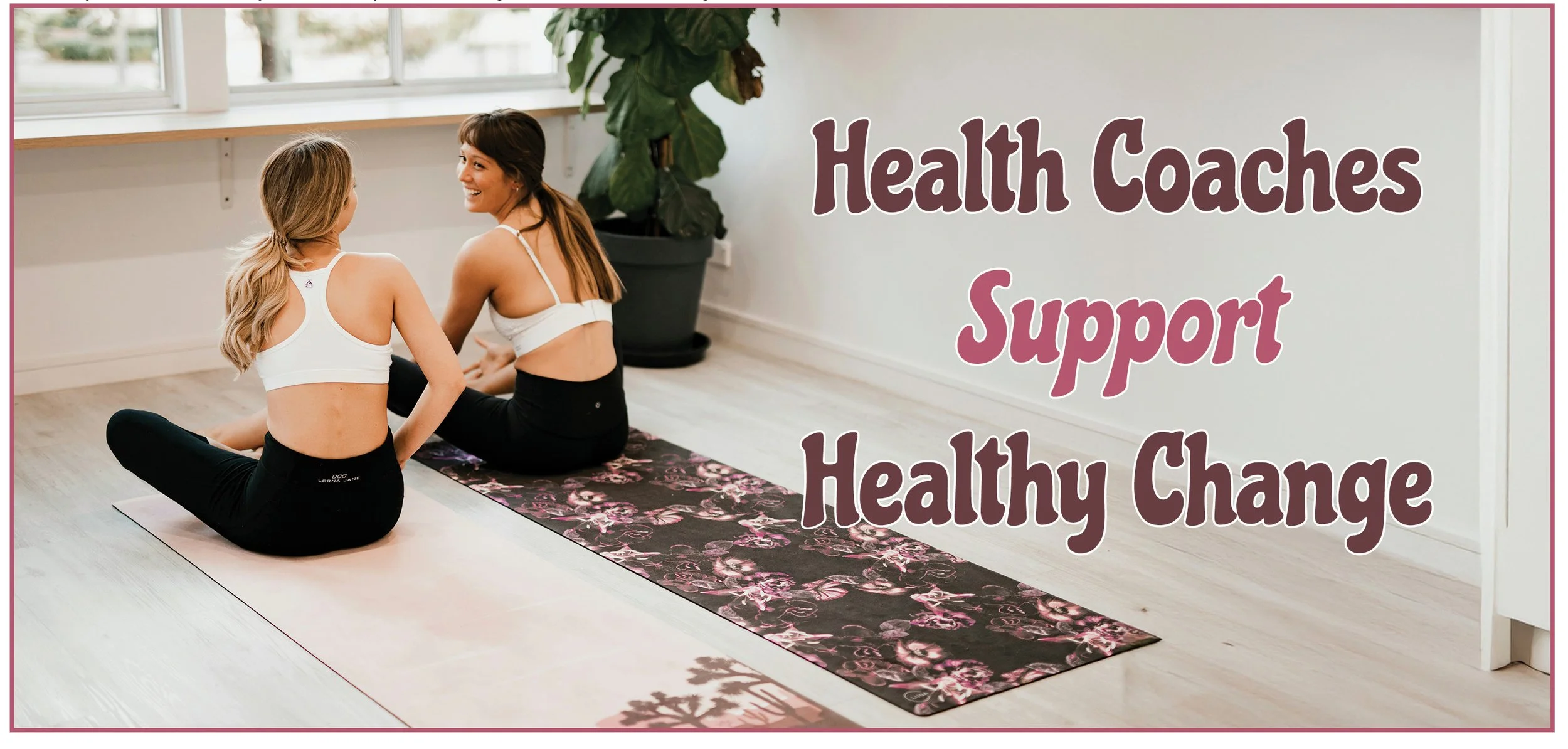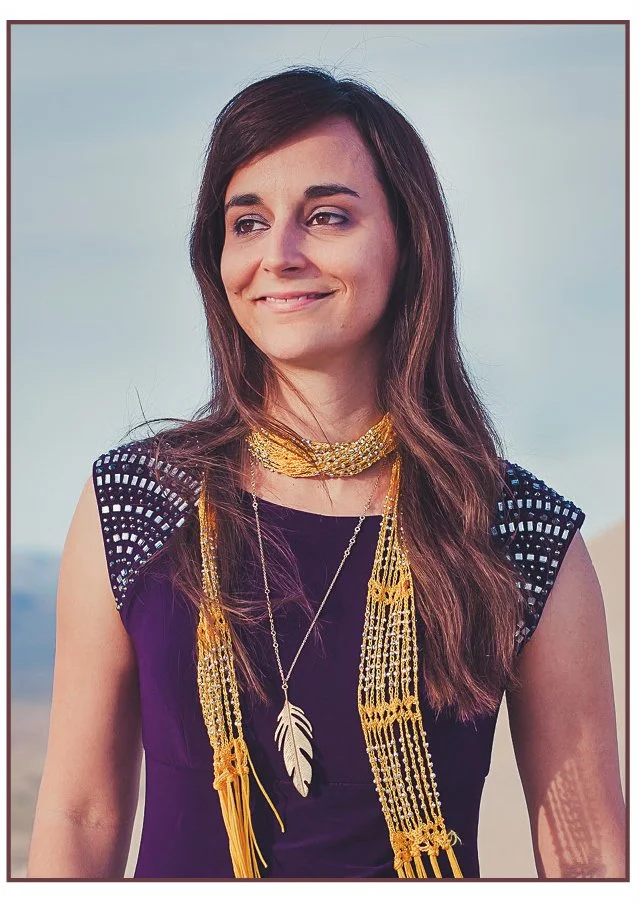By Laura Lyjack
In conventional medicine most people turn to a doctor first when they have a health concern. While doctors can play an important role in diagnosing and treating disease, they are just one player on the larger health care team. While a physician takes the lead on testing, medications, and treatments more often than not, lifestyle changes in addition to medications and treatments, are crucial to regaining good health.
However, a lifestyle change often takes effort and patience, and it’s far too easy to backslide into bad old habits. One proven way to successfully integrate those new healthy habits is to get the help of a health coach. It is becoming more common to find health coaches working both independently and in tandem with physicians in both conventional and alternative practices.
“Doctors can recommend behavior changes that improve health but they rarely can provide long-term education and support”, said Benjamin Ketcherside, an assistant professor of nursing and a health coach with a master’s degree in lifestyle health science and coaching. Like many coaches, he works online with clients in many different locations. Typical lifestyle changes might include better nutrition, more exercise, stress reduction, improved sleep, or elimination of harmful substances like tobacco or excessive alcohol consumption.
“Health coaching supports patients’ buy-in to healthy change rather than just giving them orders,” he explained. Health coaching borrows from psychology and counseling, and it focuses on positive behavior change. “It helps clients identify goals, strengths, and resources. It also provides an accountability partner.”
Ketcherside is especially interested in the way coaching supports lifestyle changes for people with chronic health conditions such as diabetes and heart disease. He cites studies that show that about 50 percent of patients fail to follow through on the lifestyle changes recommended by their doctors. However, with the support of a health coach their success rates go up to 70 or 80 percent.
Just what is a health coach?
Health coaches can come from a variety of different professions and backgrounds. They most commonly include nurses, nutritionist or dieticians, and physical therapist as well as yoga and exercise instructors.
But what makes them all health coaches, is specific training in guiding and motivating others to make change. Along with training, many coaches are certified by third party agencies that set guidelines for education and experience.
Probably the largest and best-known of these certifying agencies is the National Board for Health and Wellness Coaching (NBHWC). Other certifying agencies include the National Society of Health Coaches (NSHC), American Council on Exercise (ACE) and Institute for Integrative Nutrition (IIN).
Health coach training varies based on the certifying agency and from one training program to the next but nearly always includes training in the foundations of good health (diet, exercise, stress management, sleep, minimizing unhealthy substances, and maintaining good social connections) along with practical strategies for motivating and supporting change in clients.
Where can you find a health coach?
Coaches are most often part of a larger health care team that might include a physician or alternative practitioner, a nutritionist, physical therapist, or even a behavioral health therapist. While alternative and holistic practitioners are most likely to recognize the benefits of health coaches, conventional physician practices are also beginning to bring health coaches into their practices to support patients in making lifestyle changes to control or reverse chronic conditions.
For example, in Ann Arbor, the IHA Lifestyle Medicine practice includes the support of health coaches, the Ann Arbor Veterans Administration hospital offers coaching services, and the University of Michigan offers health coaching through Wolverine Wellness.
Many people turn to online resources for health coaching, also. Health coaches can be found on sites like Parsley Health for support in making changes to improve nutrition, movement, sleep, and stress management, Noom for weight loss and diabetes prevention, or Headspace for mental health coaching.
Is health coaching covered by insurance?
The answer is probably no, at least not yet. Sometimes coaching with a registered dietician can be covered by insurance. Or some employers may provide online health benefits that include health coaching, especially related to weight loss. In other cases, clients may be able to use their health savings accounts to pay for coaching.
However, that may change soon. The NBHWC has led the charge to change billing codes that could pave the way for health coaching to be covered by insurance. A few insurance plans and Medicare advantage plans already cover coaching.
Even the American Medical Association is an advocate for giving health coaches a bigger role in patient care, teaching in their AMA Steps Forward education hub, “By bridging the gap between the physician and patient, health coaches can help practices improve patient engagement in their care, leading to healthier patients with better outcomes.”
Eila Rain Buszko: Coaching with a focus on women’s health
As a functional diagnostic nutrition practitioner with Ann Arbor Holistic Health as well as in her private practice, Eila Rain Buszko said her role as a health coach is a central part of her work with clients. Health coaching helps clients get over mental hurdles and limiting beliefs and empowers them to feel confident and in control of their health. While doctors may spend 20 to 30 minutes with a patient and leave them with recommendations for changes, they can’t guide patients in making those changes.
Buszko works with both men and women with various health issues, but she specializes in women’s health related to hormonal imbalances. “Fluctuating hormones can affect everything from digestion to mood to chronic diseases. Women often feel unheard or misdiagnosed,” she said. She herself experienced difficult periods, PMS, acne, and fatigue for many years until she implemented changes in her diet and habits.
“I support women in terms of menstrual health, perimenopause, menopause, diving deep into gut health and digestive disorders, thyroid health, blood sugar regulation, weight management autoimmune disease, and everything hormonal related.” The list is a long one, and she explains that hormone regulation can be key to regaining health for many women.
As a diagnostic nutrition practitioner, intensive lab testing is usually the starting point with any client. Buszko uses the results to take a deep dive into what’s going on with her client’s body and get a complete picture of imbalances or deficiencies. “It’s really a root cause approach to healing,” she said. “I want to dig down deep and answer the why behind any health concerns so I can help my clients heal holistically.”
She usually meets online with clients for 45 minutes every other week. She starts by listening and understanding her client’s unique story. “The program is custom designed to fit their needs,” she explained. Together they work to develop what she calls the three-legged stool of good health: gut health, blood sugar balance, and overall detoxification.
Once she and her client come up with a plan and they’re ready to begin to make lifestyle changes, that’s when health coaching comes into play. She is there to support and encourage her clients as they build new habits and make positive changes in diet, managing stress, or getting more active.
“As a coach I support clients in implementing change. I consider myself a copilot in their journey toward health.”
Find more about Buszko at annarborholistichealth.com and eilarain.com.
Christy DeBurton: Yoga plus coaching for healthy aging
Without a doubt, yoga is Christy DeBurton’s primary focus, but she integrates health coaching into her one-on-one sessions with clients as a way of adding value. In addition to her yoga training, she completed Harvard Medical School’s Executive Education Lifestyle Medicine + Wellness Coaching course which taught her skills in motivating people to make change and adopt a healthier lifestyle.
“My coaching approach is very informal,” she said. “When I work with clients, I learn about the whole person, and their whole life. I get to know them holistically and very naturally.”
Coaching usually occurs as part of the normal conversations she has with her clients. They’ll turn to her for advice on what to eat, how to improve their sleep, or manage stress and that opens a door for her to guide and motivate them to make healthier choices.
While she works with clients of all ages, she specializes in one-on-one sessions for clients over 50 who are looking to stay strong and healthy as they age. Currently her oldest client is 81. She works with clients who’ve had knee and hip replacements or have back and neck pain. She also teaches clients how to modify their yoga practice to prevent and improve many age-related health problems including menopause, high blood pressure, osteoporosis, and arthritis.
But, if she has one overall message that guides both her coaching and her yoga instruction, it is this: managing stress is key to good health. “Stress affects your health whether you realize it or not. Even if you think you’re handling it,” DeBurton explained.
“We’re conditioned to live in this chaos of the world, but we’re just not meant to live in the stressful situations we have. Your body is responding to stress whether you know it or not.”
She works with people to make the kinds of small changes that reduce the effect of stress. “Breathing, relaxing, calming your mind. It’s not just about how you do poses on the yoga mat but how you take care of yourself in your whole life,” she said. “It’s the whole body, mind, spirit connection.”
“I really believe that if people took better care of themselves and were more compassionate toward themselves, the world would be a better place.”
Find more about DeBurton at yogaroomannarbor.com.
Brandalyn Riedel: Coaching to control diabetes and dementia
With a Ph.D in neuroscience and a background in Alzheimer’s research, Brandalyn Riedel brings a scientific approach to her health coaching. In her private practice, she coaches clients who have risk factors for diabetes, dementia, and other chronic conditions. Together they work toward integrating lifestyle changes that reduce risk and improve their current health. Her specific approach is customized to each client and their needs.
In addition to that Ph.D, Riedel is a certified functional diagnostic practitioner and a certified health coach through the FDN training program which provided her with the tools to order and interpret lab testing as well as guide her clients toward change.
She is also trained in the Bredesen Protocol, an approach to preventing and possibly even reversing cognitive decline that addresses nutrition, inflammation, hormone imbalances, toxin exposure, sleep, and insulin resistance.
Outside of her private practice, Riedel coaches participants in a University of Michigan study looking at the effects of low carb diets on participants with insulin resistance, both diabetes and a related condition in women called polycystic ovary syndrome.
Insulin resistance is the common thread running through her research and approach to health coaching. Alzheimer’s disease is sometimes referred to as “Type 3 diabetes” due to its correlation with insulin resistance. Reiedel herself was diagnosed with atypical diabetes and has implemented diet and lifestyle changes to control it.
While she is an advocate of low carb approaches, she also is open to other strategies and has coached clients using low fat diets to control and prevent chronic conditions.
Who most benefits from health coaching? “It can be really useful for people with chronic conditions such as diabetes and hypertension,” Riedel said. “In general people who see results are those who are ready for change but feel unsure how to get started.”
She added, “The most important piece for success is being open, curious, and willing. Even if a person doesn’t feel totally confident about making changes, a coach can help them unlock some of those roadblocks.”
Find more about Riedel at bodycresilience.com.
Laura Lyjak is an RN who writes about health and wellness. She was a writing teacher and public relations writer for many years and made a transition to nursing in her 50s. She lives in Dexter, raised her two sons in Ann Arbor and has three awesome grandkids.
Related Articles:








































































































































































































Discover how Zainab Alradhi founded Niswa to teach body literacy and the Sympto-Thermal Fertility Awareness Method. Learn about hormone-free fertility control, cycle tracking for health, spiritual empowerment, and why understanding your body transforms women's lives across generations.